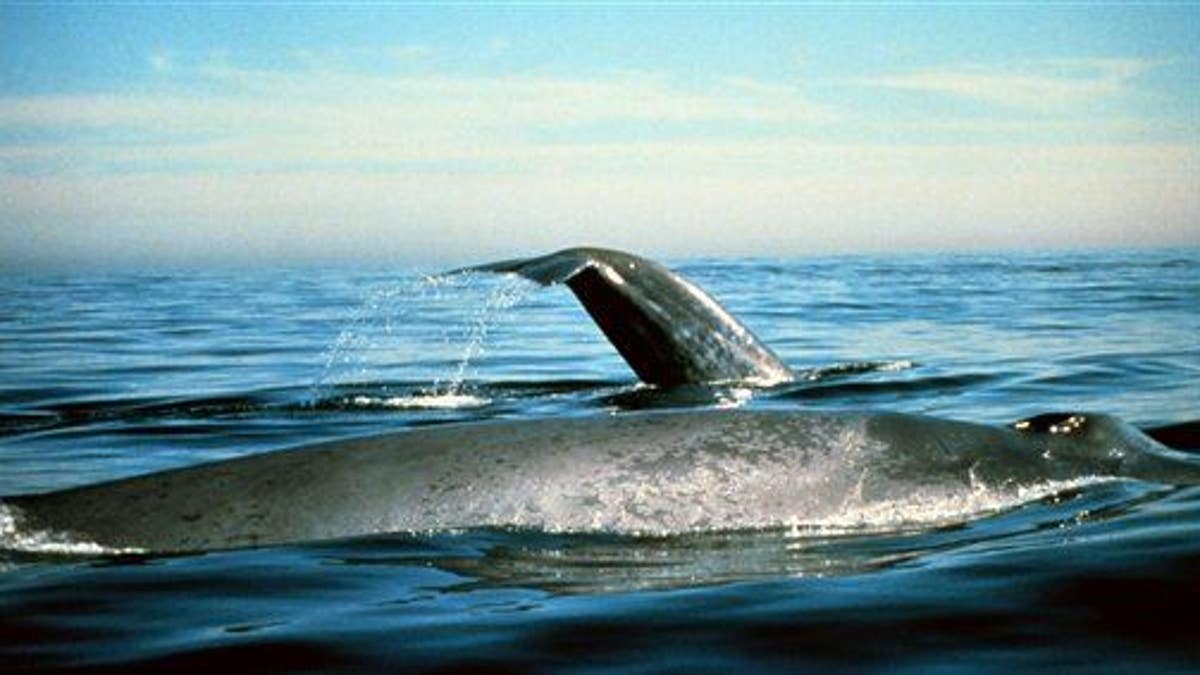
Blue whales are seen in the Gulf of the Farallones National Marine Sanctuary in California. (AP Photo/ National Oceanic and Atmospheric Administration)
Earth isn't just dealing with the loss of big mammals, such as elephants, whales, and rhinos. It's also faced with a dramatic reduction in their poop, which could have profound effects on the planet's ecosystems, reports Red Orbit.
Researchers report in the Proceedings of the National Academy of Sciences that the decline in fecal matter of big animals, which play a larger role in the spread of nutrients than previously thought, hurts the Earth’s nutrient recycling system.
Because we don't like to poop where we eat, mammals carry these nutrients around. But because so many of our once-roaming mammals are now dwindling in population or behind fences, their poop, and with it nutrients like phosphorous—which helps with plant fertilization—follow gravity to the ocean floor.
Whales in particular are good at bringing phosphorous from the ocean deep to the surface when they feed on the floor and return to the surface to breathe and poop.
But whales are one of the many waning populations, bringing 165 million pounds of phosphorus up annually, which is just 23% of what they used to.
"A world bereft of large wild animals, whether they are whales, salmon, albatrosses, or elephants, is a less productive place—and one that has lost much of its magic," one researcher tells the Washington Post.
Fortunately, "We can turn these effects around by restoring native populations of large vertebrates around the globe," he adds. But without successful intervention, the authors warn that the planet's accessible phosphorous could be gone in a half-century.
(Septic tanks aren't as good at keeping poop out of our water as we thought.)
This article originally appeared on Newser: As Big Mammals Die Off, Planet Suffers a Poop Shortage
More From Newser
